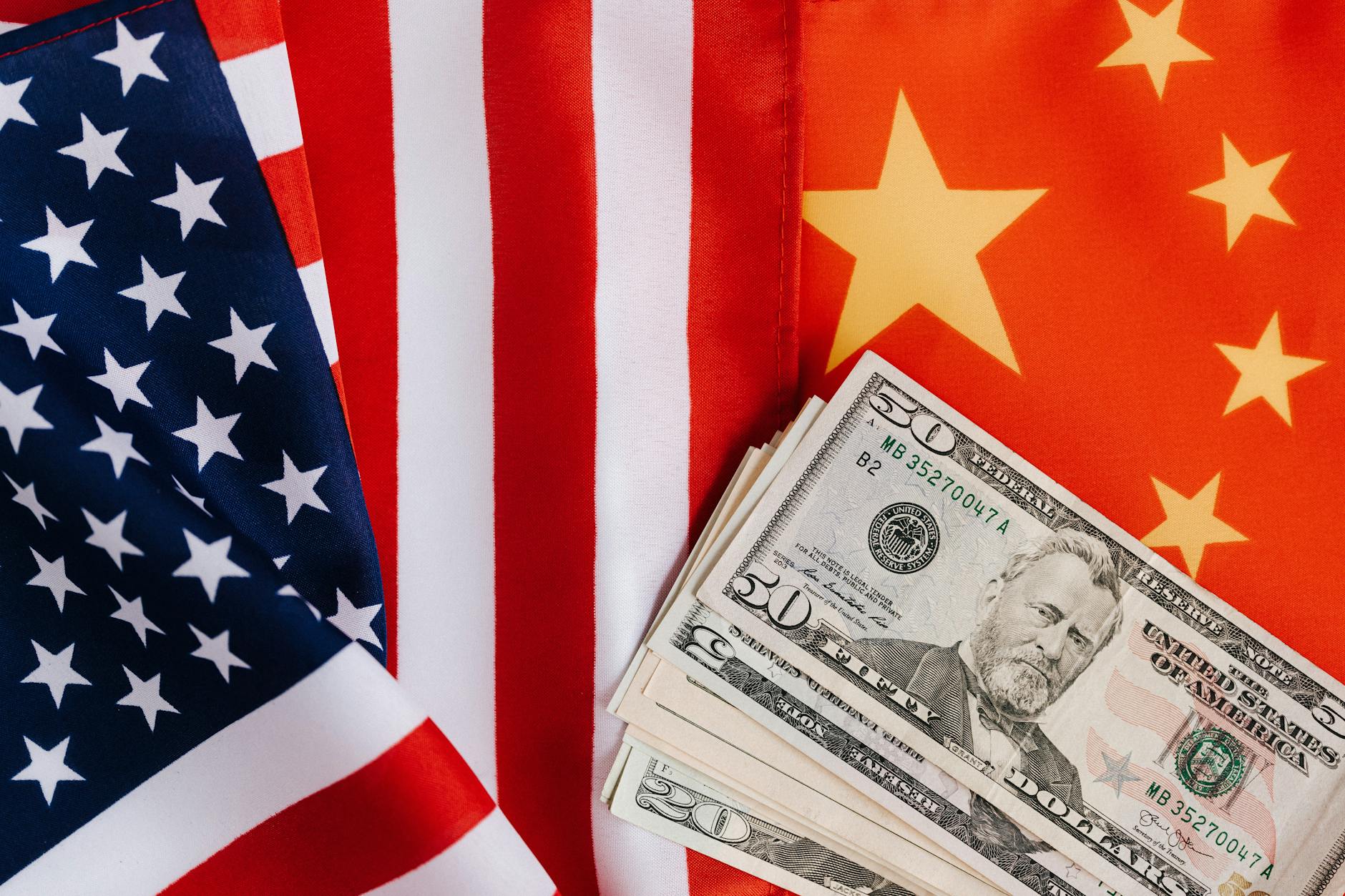Startups
Getting Traffic through Backlinks
Backlinks always help grow the startups for delivering services. The Backlinks are created in many ways and this is the cheapest and free tool to market your services to wider customers as Backlinks take the search ranking to a higher place. The Backlinks can define as the feedback links.
Means whenever you visit any popular blog ,read the most commented or popular blog post , you leave your feedback as feedback from asks about your email , website and name that means you are not just commenting but instead your are marking your company as most search engine value such feedback and experts call these links as Backlinks .
It will be a Free page ranking tool since links could become some time cashlinks if the readers go through such links and reach your site through that comment. Moreover, Forum Posts and article marketing is also another type of Marketing which really drives traffic and lands them virally on your business site thus increasing your page impression and unique visitors at the same time .
You can also take Backlinks through free classified boards and thus increase your revenue chances. Backlinks also made through the review such blogs which advise customers regarding the services being offered by certain companies and after reading the honest and researched reviews the visitors are directed to visit the site and the visitors find some services or products worthwhile could turn into customers .
Blogs such as StartupsPro.club, RemoteWorkTips.pro ,www.allbusiness.club, Startups.co.uk , Startups.pk , Startups.in , launchfeed.com or KillerStartups.com sites review five to 15 startups along with the entrepreneurs thus increase chances for your revenues and number of visits per day as these Startups publish articles and review startups business sites direct visitors to your portal. Thus creating great many Backlinks or direct links for you.
Discover more from The Monitor
Subscribe to get the latest posts sent to your email.
China
The Battle Over TikTok: Can the Company Fight Back?

The battle over TikTok has raged for months as the United States government has grown increasingly concerned about the potential security risks posed by the popular social media app’s Chinese ownership. In August 2020, President Trump signed an executive order that would have banned TikTok in the US unless its ownership was transferred to an American company. A federal judge later blocked the order, but the threat of a ban has loomed over the app ever since.

Recently, the US Congress took a first step towards forcing TikTok’s Chinese owner, ByteDance, to sell the app. The move came in the form of the Holding Foreign Companies Accountable Act, which was signed into law in December 2020. The law requires foreign companies listed on US stock exchanges to comply with US auditing regulations or face delisting. ByteDance is currently in the process of exploring options to comply with the law, including a possible sale of TikTok to a US buyer.
Table of Contents
Key Takeaways
- The US government has been concerned about the security risks posed by TikTok’s Chinese ownership, and the threat of a ban has loomed over the app for months.
- The Holding Foreign Companies Accountable Act requires foreign companies listed on US stock exchanges to comply with US auditing regulations or face delisting, which could force ByteDance to sell TikTok to a US buyer.
- The battle over TikTok highlights the economic and political stakes of technology ownership and raises important questions about legislative actions and corporate responses to national security concerns.
Legislative Actions

The battle over TikTok has led to a series of legislative actions by the US Congress. In August 2020, Congress took the first step towards forcing the app’s Chinese owner, ByteDance, to divest TikTok’s US operations to a US-based company. This was in response to concerns over national security and the potential for user data to be accessed by the Chinese government.
Congressional Steps Toward Divestment
The divestment order was issued by the Committee on Foreign Investment in the United States (CFIUS), a government agency responsible for reviewing foreign investment in US companies. This order required ByteDance to sell TikTok’s US operations within 90 days, or face a ban on the app in the US.
In response, ByteDance filed a lawsuit challenging the divestment order, arguing that it was not given due process and that the order was politically motivated. However, the lawsuit was dismissed by a federal judge in December 2020.
Legal Implications
The battle over TikTok has raised important legal questions about the relationship between national security and foreign investment in the US. The divestment order issued by CFIUS was based on concerns over national security, but it is unclear whether such concerns can be used to justify forcing a foreign company to sell its US operations.
Moreover, the battle over TikTok has highlighted the challenges of regulating social media platforms that are owned by foreign companies. TikTok’s Chinese ownership has raised concerns over the potential for user data to be accessed by the Chinese government, leading to calls for greater regulation of social media platforms.
Overall, the battle over TikTok has demonstrated the complex legal and regulatory challenges posed by foreign investment in the US, particularly in the technology sector. While Congress has taken steps towards divesting TikTok’s US operations, the legal implications of such actions remain unclear.
Corporate Response

Company’s Defense Strategy
TikTok’s Chinese owner, ByteDance, has vowed to fight back against the US Congress’s decision to force it to sell off the app’s US operations. The company is reportedly considering several options to defend itself, including legal action, lobbying efforts, and potential partnerships with US companies.
ByteDance has argued that the move by Congress is politically motivated and violates the company’s rights. The company has also emphasized that TikTok’s US user data is stored in the US and is not subject to Chinese government control.
To bolster its defence, ByteDance has hired a team of high-profile lawyers, including former US Solicitor General Theodore Olson. The company is also reportedly exploring potential partnerships with US companies, such as Microsoft, to help address concerns about data security.
Public Relations Efforts
In addition to its legal and lobbying efforts, ByteDance has launched a public relations campaign to defend the app and its Chinese ownership. The company has emphasized TikTok’s popularity and cultural impact, highlighting its role in promoting diversity and creativity.
ByteDance has also sought to distance itself from the Chinese government, emphasizing that it operates independently and is not subject to Chinese censorship laws. The company has also emphasized its commitment to data privacy and security, noting that it stores user data in the US and other countries outside of China.
Despite these efforts, ByteDance faces an uphill battle to defend TikTok’s US operations. The company will need to address concerns about data security and potential Chinese government influence, while also convincing US lawmakers and regulators that it can operate independently and in the best interests of US users.
Economic and Political Stakes

The battle over TikTok has major economic and political implications for both the United States and China. With more than 91 million users in the US alone, TikTok has become a significant player in the social media landscape, and its popularity has made it a target of concern for US lawmakers. The recent moves by the US Congress to force the app’s Chinese owner to sell it off have raised questions about the future of the app and its impact on US-China relations.
Impact on US-China Relations
The battle over TikTok has the potential to further strain already tense relations between the US and China. The Trump administration has been vocal in its criticism of China, and the move to force the sale of TikTok is just the latest in a series of actions taken against Chinese companies. The Chinese government has responded with its own set of measures, including new restrictions on US tech companies operating in China.
The ongoing battle over TikTok has also highlighted concerns about data privacy and security. US lawmakers have raised concerns about the app’s data collection practices and the potential for the Chinese government to access user data. China has denied any wrongdoing and has accused the US of using national security concerns as a pretext for protectionism.
Consequences for Global Markets
The battle over TikTok has wider implications for global markets. The app’s popularity has made it a significant player in the social media landscape, and its forced sale could have ripple effects on the tech industry as a whole. The move could also have implications for other Chinese companies operating in the US, and could lead to a wider crackdown on Chinese investment in the US.
The battle over TikTok is likely to continue for some time, and the outcome is far from certain. However, the economic and political stakes are high, and the impact of the battle could be felt for years to come.
Frequently Asked Questions

What is the rationale behind the US Congress’s move to force a sale of TikTok?
The US Congress has expressed concerns about the potential national security risks posed by TikTok’s ownership by Chinese company ByteDance. Lawmakers have cited fears that TikTok’s data collection practices may be used by the Chinese government to gather sensitive information on US citizens. The move to force a sale of TikTok is seen as a way to mitigate these risks.
What is the status of the legislation aimed at banning TikTok?
As of the current date, no legislation has been passed to ban TikTok in the US. However, the US Department of Commerce has taken steps to restrict the app’s use in the country. In September 2020, the Department announced that it would ban TikTok from US app stores, though this decision was later temporarily blocked by a federal judge.
How might TikTok’s ownership respond to the US legislative actions?
TikTok’s ownership has previously pushed back against US legislative actions aimed at restricting the app’s use. The company has argued that it operates independently of the Chinese government and has taken steps to distance itself from its Chinese roots, including hiring US-based executives and establishing a US-based subsidiary. However, it remains to be seen how the company will respond to the latest legislative actions aimed at forcing a sale of the app.
What are the potential consequences for users if TikTok is banned in the US?
If TikTok is banned in the US, users may lose access to the app’s social media features, including the ability to create and share short-form videos. However, it is worth noting that TikTok’s popularity has led to the emergence of several alternative social media apps that offer similar features, such as Instagram’s Reels and Byte, which was created by the co-founder of Vine.
Has any legislation been passed to date regarding the prohibition of TikTok?
As of the current date, no legislation has been passed to prohibit the use of TikTok in the US. However, the US government has taken steps to restrict the app’s use, including the aforementioned ban on TikTok in US app stores.
Which other countries have taken steps to ban or restrict TikTok?
Several other countries, including India and Pakistan, have taken steps to ban or restrict TikTok over concerns about national security and user privacy. In India, TikTok was banned in June 2020, along with several other Chinese-owned apps. In Pakistan, the government has announced plans to ban TikTok unless the app takes steps to address concerns about “obscenity and immorality.”
Discover more from The Monitor
Subscribe to get the latest posts sent to your email.
Economy
The Magnificent 7: Global Profits Surpassing Nations – A Cause for Concern or Celebration?”

Table of Contents
Introduction
In the ever-evolving landscape of global economics, a recent development has caught the attention of many: the combined profits of the world’s seven largest corporations, often referred to as the “Magnificent 7,” have surpassed the GDP of almost every country on the planet. This staggering achievement raises questions about the implications of such concentrated wealth and power. In this blog article, we’ll delve into the details of this phenomenon, analyze its potential impacts, and explore whether we should be worried.
The Rise of the Magnificent 7
The Magnificent 7, a term coined by The Economist, refers to the seven largest corporations in the world by market capitalization. These companies, which include Apple, Microsoft, Alphabet (Google), Amazon, Facebook (Meta), Berkshire Hathaway, and Alibaba, have grown exponentially in recent years, amassing profits that rival the economic output of entire nations.
A Global Perspective
To put this into perspective, the combined profits of the Magnificent 7 have surpassed the GDP of countries like Switzerland, Sweden, and Belgium. This raises concerns about the distribution of wealth and power, as well as the potential for these corporations to influence global politics and economics.
The Benefits of Corporate Success
The success of these corporations has undeniably brought benefits to the global economy. They have created jobs, driven innovation, and provided goods and services that have improved the lives of millions. Their profits have also contributed to the growth of the stock market, providing returns for investors and pension funds.
The Potential Drawbacks
However, there are also potential drawbacks to this concentration of wealth and power. Some of these concerns include:
- Monopolistic tendencies: The size and influence of these corporations could lead to the stifling of competition, limiting consumer choice and potentially harming innovation.
- Tax avoidance: The ability of these corporations to shift profits across borders to minimize tax liabilities could result in a loss of tax revenue for governments, potentially impacting public services and infrastructure.
- Privacy and data concerns: The vast amounts of data collected by these corporations could pose risks to individual privacy and security.
- Political influence: The financial resources of these corporations could give them undue influence over political processes, potentially undermining democratic principles.
Addressing the Concerns
To address these concerns, governments and regulatory bodies could consider the following measures:
- Antitrust laws: Strengthening antitrust laws and enforcement could help prevent monopolistic practices and promote competition.
- Tax reform: Reforming tax laws to prevent profit-shifting and ensure corporations pay their fair share could help maintain government revenue.
- Data protection: Implementing robust data protection laws and regulations could help protect individual privacy and security.
- Campaign finance reform: Limiting corporate influence over political processes could help maintain the integrity of democratic institutions.
Conclusion
The success of the Magnificent 7 is a testament to the power of innovation and entrepreneurship. However, their growing influence and wealth also raise legitimate concerns about the distribution of power and resources. By addressing these concerns through thoughtful policy and regulation, we can ensure that the benefits of corporate success are shared more equitably and that the potential drawbacks are mitigated.
Discover more from The Monitor
Subscribe to get the latest posts sent to your email.
Digital
Karachi-based digital bookkeeping startup, CreditBook raises $1.5 million in seed funding

The Karachi-based digital bookkeeping startup CreditBook, which is trying to ensure that tracking of transactions goes digital, has announced that it has raised US$1.5 million in seed funding from international and local investors.
Key investors included Pakistan’s BitRate Venture Capital, VentureSouq from the United Arab Emirates, US-based Better Tomorrow Ventures, Ratio Ventures, Quiet Capital, Toy Ventures, and i2i Ventures.
Established in June 2020 by Hasib Malik, Iman Jamall, and Hisham Adamjee, CreditBook strives to help microentrepreneurs digitalize and track their transactions.
CreditBook aims to utilize the funding to scale its user base and diversify its product offerings. As indicated by the startup, its registered client base grew 5x in the last six months to reach 500,000.
“Before the launch in June 2020, we had planned to use a mix of digital marketing and offline acquisition. But with lockdown restrictions, we pivoted to a purely digital strategy. We were surprised when we saw thousands of users come onto the platform in the first month with less than $1,000 in total spend,” Malik told Tech in Asia. Via TechinAsia
Discover more from The Monitor
Subscribe to get the latest posts sent to your email.
-

 Featured5 years ago
Featured5 years agoThe Right-Wing Politics in United States & The Capitol Hill Mayhem
-

 News4 years ago
News4 years agoPrioritizing health & education most effective way to improve socio-economic status: President
-

 China5 years ago
China5 years agoCoronavirus Pandemic and Global Response
-

 Canada5 years ago
Canada5 years agoSocio-Economic Implications of Canadian Border Closure With U.S
-

 Democracy5 years ago
Democracy5 years agoMissing You! SPSC
-

 Conflict5 years ago
Conflict5 years agoKashmir Lockdown, UNGA & Thereafter
-

 Democracy5 years ago
Democracy5 years agoPresident Dr Arif Alvi Confers Civil Awards on Independence Day
-

 Digital5 years ago
Digital5 years agoPakistan Moves Closer to Train One Million Youth with Digital Skills























